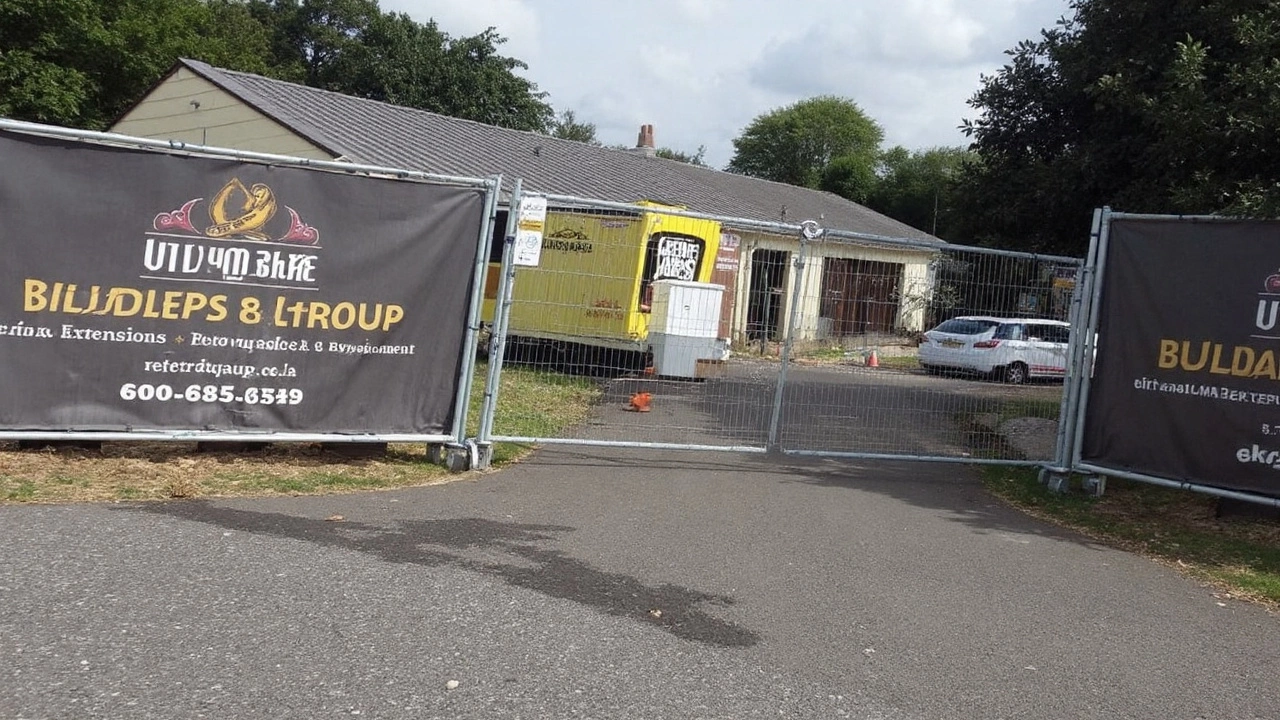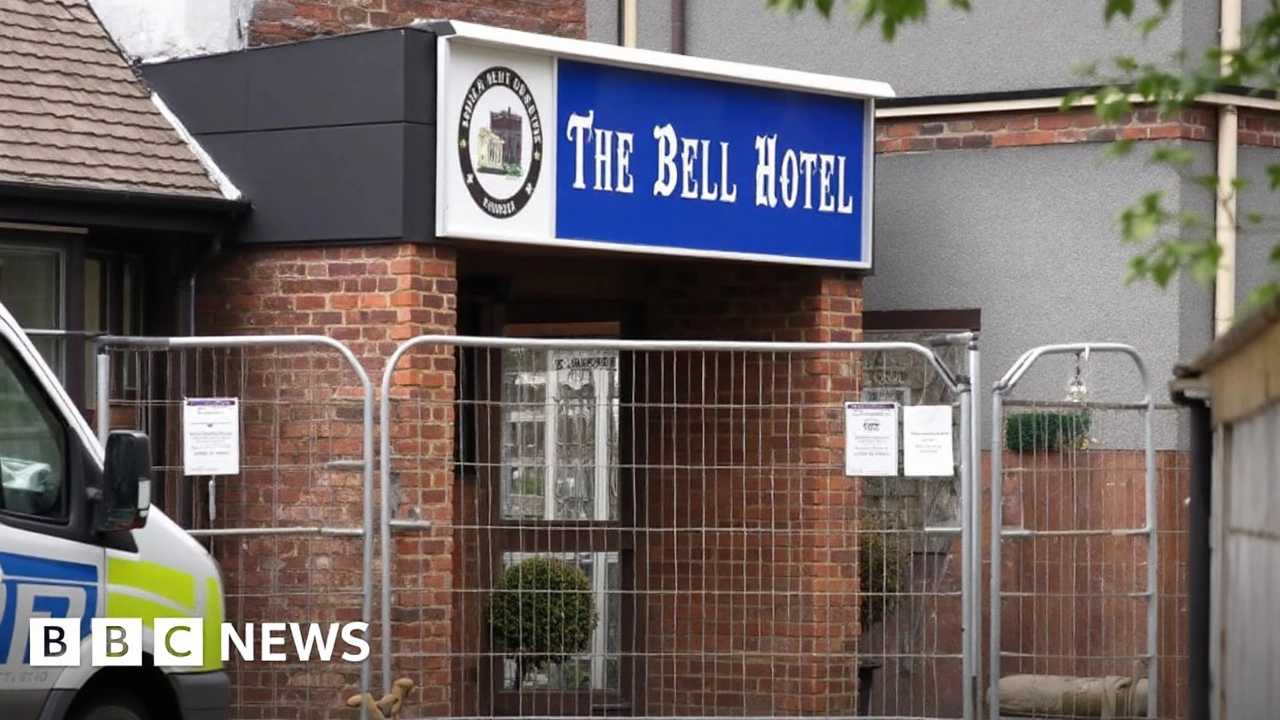Home Office challenges injunction that could ripple through the asylum estate
The government is racing to overturn a court order that could force asylum seekers out of the Bell Hotel in Epping within weeks—and potentially set off a chain reaction across England’s already stretched asylum system. The Court of Appeal will hear the case on Thursday, with both the Home Office and the hotel’s owners trying to knock down an interim injunction won by Epping Forest District Council.
At the center is the Bell Hotel, which resumed housing asylum seekers in April 2025 under a contract between Somani Hotels and CTM (North) Ltd. The council argued the hotel switched from normal hotel use to asylum accommodation without planning permission. A High Court judge agreed to an interim order to stop that use, even while noting the council had not definitively proved its case at this stage.
Mr Justice Eyre said the balance of the arguments favored the council for now. He also refused a late bid by Home Secretary Yvette Cooper to formally join the case, a decision the Home Office will challenge alongside the injunction itself. The full dispute is due to be heard in the autumn, so the legal picture could still swing back toward the hotel and the department later in the year.
The ruling lit a fuse locally. The Bell Hotel has seen heated demonstrations and counter-protests in recent weeks, with arrests made and police officers injured. The council described the site as a magnet for unrest. Tensions spiked further after a resident was charged with the sexual assault of a teenage girl. That backdrop contrasts with an earlier stint: from October 2022 to April 2024, the hotel hosted mainly single adult men seeking asylum without reported incidents, before closing for a year and reopening in April 2025.
In court, the Home Office warned that the injunction risked encouraging more confrontations, by making hotly contested sites look vulnerable to local pressure. Officials also argued that if councils nationwide copy the strategy, it will pile strain on an asylum estate that is already thinly stretched. Within hours of the judgment, Broxbourne Council in Hertfordshire said it was seeking urgent legal advice to bring a similar claim.
The stakes go far beyond one property in Essex. Around 30,000 asylum seekers are currently living in hotels due to a lack of other accommodation. If even a fraction of those sites empty out because of planning challenges, the Home Office will need new places at short notice. Moving large numbers quickly is not straightforward—transport must be arranged, vulnerable people need support, and local services have to be briefed. Providers also have to ensure basic safeguards and continuity for those who have already started receiving advice or healthcare in one area.
Legally, the fight turns on planning rules and what counts as a “material change of use.” Hotels sit in Class C1 of the use-class system. Councils often argue that turning a hotel into long-term accommodation for a specific group—like asylum seekers—looks more like a hostel or an institution, and so needs fresh consent. Operators say the building is still functioning as a hotel in practice—rooms, meals, staff—and many stays are short. Judges have split on where to draw the line in past disputes, which is why interim orders like this one lean heavily on the balance of convenience until a full hearing sets the facts.
Behind the scenes, the placements are handled through a web of contracts. Somani Hotels runs the site; CTM (North) Ltd manages bookings. The Home Office relies on major accommodation and support providers nationally—such as Mears, Serco, and Clearsprings—to find beds, deliver basic services, and move people when needed. When courts step in, those logistics can turn on a dime. If the Bell Hotel must clear out, contractors need immediate alternatives, and the knock-on effect can be felt across neighboring authorities.
Politics is never far away. Shadow Home Secretary Chris Philp called the court’s move a relief for local residents. Conservative leader Kemi Badenoch hailed it as a win for parents worried about safety. The case has become a proxy for a bigger debate: who gets to decide where asylum seekers live, how planning rules should apply, and what happens when national policy collides with local consent.
Thursday’s appeal could bring three broad outcomes. The court might uphold the injunction and keep the clock ticking toward removals. It could vary the terms, giving the Home Office more time or clearer conditions. Or it could lift the order entirely, letting operations continue at the hotel until the full case in the autumn. Each path carries risks: for the council’s enforcement stance, for the Home Office’s placements, and for the residents in limbo.
For now, the Bell Hotel is a small site with outsized meaning. If judges treat it as a test case, other councils will take note—and so will hotel chains, contractors, and the people living out the consequences of a legal argument about what a asylum hotel really is in planning law.

What to watch next
- Whether the Court of Appeal allows the Home Office to formally intervene, which could shape how similar disputes are run elsewhere.
- How quickly Broxbourne and other councils move to court, and whether they lean on the Epping precedent.
- If the injunction stands, how the Home Office balances clearing the Bell Hotel with keeping pressure off other parts of the estate.
- Signals from judges on the core planning question: when does hotel use tip into something that needs fresh consent?





